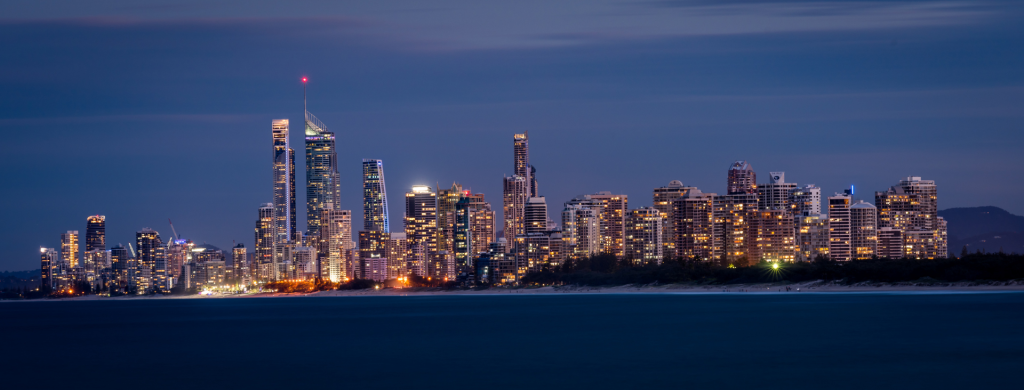With a representative lawsuit on the horizon, migrant advocates are asking Immigration Minister Kris Faafoi to engage with them for solutions.
Immigration lawyers and advocates from around the country will be gathering this Thursday to discuss the future of New Zealand’s post-Covid immigration policy.
The event, held by New Zealand Association for Migration and Investment, will have a recorded address from Immigration Minister Kris Faafoi, according to the conference agenda.
Following the event, migrant advocates are hosting a concert to raise funds for split families.
Immigration advisor Katy Armstrong, who plans to attend both events says there is pressure mounting on Faafoi to make a decision on split families and visit the events.
When asked about reuniting families, In a written response to Newsroom Faafoi referred to his announcement in April this year when he created a number of border exceptions to allow hundreds more families separated by the border closure to reunite.
“We continue to consider further border exception options and changes to immigration settings, where and when possible, to enable more families to reunite; subject to MIQ capacity.”
But Armstrong says that’s not good enough. She says Faafoi hasn’t been engaging with migrant advocates.
“I think some issues are blowing out of proportion because he hasn’t been forthcoming. If he just sit down with us, we could maybe even help with solutions.”
Meanwhile, hundreds of migrants and advocates are raising $50,000 to back a representative lawsuit against Faafoi for decisions he has been accused of making unlawfully and in breach of international conventions.
The court action relates to Faafoi’s decision on June 23 this year announcing the suspension of processing offshore visa applications, and his subsequent decision made on July 7 to cancel and refund 50,000 temporary offshore visa applications, some of which were already being processed.
Lawfirm D&S partner Pooja Sundar says her client University of Auckland science professor Michael Witbrock has been separated from his husband, a Chinese citizen, since January last year.
The couple are in a genuine and stable relationship, but due to the suspension on issuing such visas, Witbrock’s partner has not been granted a visa nor been given a border exemption.
Sundar’s case alleges the minister failed to properly consider the obligations of international conventions and discriminated on the basis of race, religion, sex and sexual orientation as these social groups do not always permit partners to live together depending on which country they are based.
The grounds for the action are that the minister failed to properly consider the obligations international conventions, which New Zealand ratified, placed on him when making these decisions as it continues to separate partners and families. The decisions made also result in discrimination on the basis of race, religion, sex and sexual orientation as these social groups do not always permit partners to live together depending on which country they are based. Freedom from such discrimination is protected by the New Zealand Bill of Rights Act 1990.
But Sundar says the case was not just about Witbrock, he was also representative of the plight of many migrants split apart from their families because of the Government’s immigration policies.
“We’re taking representative action. Michael is a representative for this entire class… he has taken legal action against the actual decisions of the minister. Which means in effect, if he is successful, it will affect every other person in his or his partner’s position.”
New Zealand doesn’t have a statutory class action regime, our legal system supports representative action that allows proceedings by one person on behalf of people with a shared interest in the subject matter of the case. While the courts allow class actions, the process is slow, and expensive.
Immigration advisor Katy Armstrong says migrants working in critical sectors such as healthcare who have been split from their families have been leaving the country for good. Photo: Supplied
While a court date was yet to be set, Sundar hoped there would be a determination by the end of the year.
“We’re in this for the long haul. It may be that we end up taking it beyond the High Court if needed,” Sundar says.
Anna Burghardt is the co-founder of Facebook page Migrants NZ which has some 52,000 members, and has helped set up the fund to raise legal fees for Witbrock, despite never having met or spoken to him.
“We’ve been seeing so many stories about migrants split apart in the news and I think fundraising has empowered people to feel like they can do something about it,” Burghardt says.
“This isn’t about Michael. He is more symbolic of everyone else actually getting affected by this action.”
Armstrong says Covid has compounded an already bad situation many migrants faced regarding being split from their partners.
“The reason couples who were split are in such a predicament is because some of these couples have been split for four or more years because our whole immigration history vis-à-vis couples who don’t live together is very, very ugly,” Armstrong says.
Armstrong says for years, prior to Covid, immigration has operated “unfairly” and without cultural competence.
She says that historically, immigration policy has required couples to “live together” among the requirements to be recognised as being legitimate partnerships. But Armstrong says the policies have failed to reflect multicultural societies and practices of people from countries where their partners may not be able to live together due to religious, cultural beliefs or for safety.
One of Armstrong’s clients is a refugee settled in New Zealand from Afghanistan, whose husband is currently stuck in Kabul, where the militant group Taliban have taken control since the exit of US troops last month.
“What’s she supposed to do? Her husband’s in Kabul, he might have gone into hiding. And we’re not allowed to put in a visa application for him because he’s offshore and they haven’t lived together, because they haven’t been able to because Kabul is a dangerous place.
“It was her mother’s dying wish to marry a man from her culture.
“These are culturally very sensitive issues and our immigration system has failed these couples, over and over.”
Migrants working in critical sectors such as healthcare who have been split from their families have been leaving the country for good, Armstrong says.
“They’ve always thrown fraud as a reason at us, but there is a lot of racial profiling that goes into this. I’ve been doing this for 16 years, know very well in the partnership space that where you or your partner is from plays an enormous part in whether you get a visa.”
https://www.newsroom.co.nz/pro/pressure-mounting-on-minister-to-take-control-of-immigration-issues


